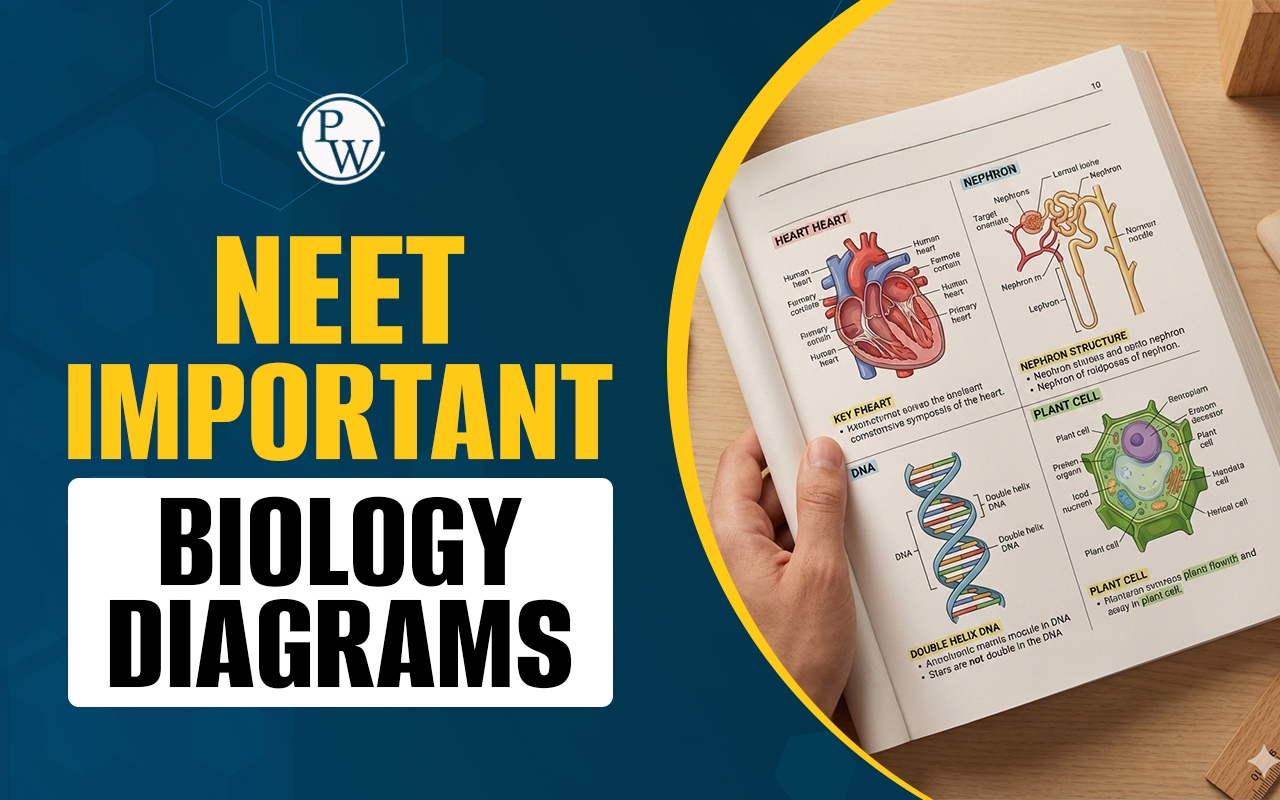
ADH Full Form: The Full Form of ADH is Antidiuretic Hormone or arginine vasopressin (AVP), a crucial hormone synthesized from nano peptides in the brain, specifically in the hypothalamus. Once formed, it accumulates in the pituitary gland and travels through the axon to various body parts.
ADH is vital in regulating blood pressure, kidney function, and maintaining the body's osmotic balance. It effectively controls the water ratio in the blood. In its absence, the body becomes susceptible to various diseases, making ADH essential for overall health.ADH Full Form in English
The ADH Full Form in English is the Antidiuretic hormone. ADH is a hormone that helps kidneys control the quantity of water in your body. The ADH test determines the amount of ADH in your blood. This test is often combined with other tests to determine the cause of either too much or too little of this hormone in the blood.
ADH Full Form in Hindi
The ADH Full Form in Hindi is एंटीडाययूरेटिक हार्मोन या आर्जिनिन वैसोप्रेसिन कहा जाता है। ADH एक प्राकृतिक रूप से पाया जाने वाला हार्मोन है| इसके अलावा, पिट्यूटरी ग्रंथि में संग्रहीत यह हार्मोन न्यूरॉन्स के माध्यम से शरीर में स्थानांतरित होता है और शरीर की कई अचेतन गतिविधियों को नियंत्रित करता है, जैसे रक्तचाप को नियंत्रित करना, आसमाटिक संतुलन बनाए रखना, गुर्दे और हृदय की उचित कार्यप्रणाली का निर्धारण करना। यह विशेष हार्मोन मस्तिष्क के हाइपोथैलेमस में नैनो पेप्टाइड्स के संश्लेषण के दौरान स्रावित होता है और पिट्यूटरी ग्रंथि में जमा हो जाता है। हालाँकि, एंटीडाययूरेटिक हार्मोन की अधिक मात्रा से शरीर में नमक की कमी, रक्त का पतला होना, किडनी में अतिरिक्त पानी जमा होना आदि हो सकता है। दूसरी ओर, एंटीडाययूरेटिक हार्मोन की कमी से शरीर निर्जलीकरण की स्थिति में चला जाता है। साथ ही निम्न रक्तचाप की स्थिति भी।
ADH Full Form in Medical
The ADH Full Form in medical is Antidiuretic hormone. ADH, or arginine vasopressin, is a hormone in the brain by the hypothalamus and stored in the posterior pituitary gland. Its principal purpose is to tell the kidneys how much water to save. ADH plays a crucial role in constantly regulating and balancing the water level in the blood. When the water concentration increases, it leads to a rise in blood volume and pressure. Working with osmotic sensors and baroreceptors, ADH helps maintain water metabolism. The hypothalamus's osmotic sensors respond to the concentration of particles in the blood, which includes sodium, chloride, potassium, and carbon dioxide molecules. When these particles are out of balance or blood pressure is too low, these sensors and baroreceptors alert the kidneys to retain or release water to keep these compounds within a healthy range. They also help to regulate the body's thirst sensation.
| October Month’s Medical Days | |
| World Heart Day | Breast Cancer Awareness Month |
| World Mental Health Day | World Arthritis Day |
| Global Handwashing Day | World Food Day |
Properties of ADH
ADH, also known as antidiuretic hormone, is a crucial hormone our bodies produce. It plays multiple vital roles that contribute to our overall well-being:
- Maintaining the Body's Balance: ADH helps ensure that our body maintains a proper balance of water and solutes. It accomplishes this by controlling the amount of water reabsorbed through the kidneys, particularly when our bodies are under high-concentration conditions.
- Keeping Our Rhythms in Check: These hormones are like internal timekeepers, helping us regulate our circadian rhythm. This means they play a role in determining our sleep-wake cycles and other essential biological rhythms.
- Tackling Nausea: ADH also steps in to help when we experience nausea. It has a role in how our body responds to nausea and discomfort.
- Boosting Kidney Function: Our kidneys are essential for filtering waste and maintaining the right balance of substances in our bodies. ADH assists in water reabsorption and ensures we excrete concentrated urine, contributing to better kidney function.
- Keeping Blood Pressure in Check: The right level of ADH is crucial for regulating our blood pressure, which is essential for a healthy cardiovascular system.
- Connecting with Our Nervous System: ADH has a special relationship with our central nervous system, influencing various aspects of our physiology and behaviour.
- A Source of Goodness: ADH even provides our body with amino acids, which are building blocks that support overall body functioning and help keep things running smoothly.
Applications of ADH
ADH, a hormone naturally produced by the hypothalamus in our brain, offers numerous medical benefits that have significantly contributed to medical science. Let's explore some of the essential applications of ADH: Treating Distributive Shock: ADH is utilized to treat distributive shock, a condition where certain organs like the heart, brain, and kidneys suffer from inadequate blood flow. Managing Cardiac Problems: ADH effectively deals with cardiac issues such as faster heart rate and cardiac attacks. Addressing Septic Shock: ADH injections stabilize patients with septic shock and aid in their recovery. Diabetes Insipidus Treatment: ADH injections are offered in some countries to treat Diabetes insipidus, a disorder characterised by excessive thirst and frequent urination. Low Vasopressin Secretion: ADH plays a vital role in addressing inadequate vasopressin secretion, ensuring proper water balance in the body. Controlling Bleeding: ADH also controls bleeding in specific conditions like haemophilia A or Von Willebrand disease, providing valuable patient support.
Role of ADH in Human Health
As a naturally occurring hormone in the body, ADH, also known as antidiuretic hormone, plays an important role in human health. However, imbalances in its levels can lead to various health issues. Elevated ADH levels can be triggered by conditions such as cancers, lung infections, and impaired blood flow to the brain. This excess of ADH results in a health condition called the Syndrome of Inappropriate Antidiuretic Hormone Secretion (SIADH). Medical procedures, brain trauma, and dehydration can also cause an increase in ADH levels. Conversely, decreased ADH levels can lead to diabetes insipidus, increased blood sodium levels, Polyurea (excessive urine production), and polydipsia (excessive thirst).
ADH Study
ADH has been a significant subject of study in various medical research endeavours. It is widely utilized in animal studies to differentiate between monogamous and polygamous species. By examining vasopressin distribution and vasopressin receptors in the brain, researchers can determine the behavioural patterns of these species. In addition to animal studies, ADH is studied about several human health conditions, including depression, bipolar disorder, schizophrenia, and more.
Check NEET Exam Important Links
| NEET Exam Important Links | |
| NEET Syllabus | NEET Sample Paper |
| NEET Notes | NEET Previous Year Question papers |
ADH Full Form FAQs
What is ADH short for?
Why is antidiuretic hormone important for our body?
Where is ADH produced in the body?
What is the function of antidiuretic hormone?
What are the effects of ADH deficiency?










